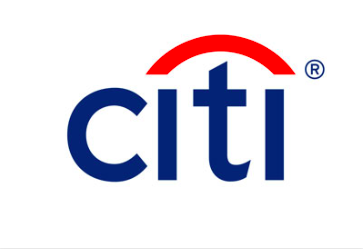
Citigroup’s logo from its website
MANILA, Philippines — The country’s financial regulators are “closely monitoring developments” following the announcement of global financial giant Citigroup that it would withdraw from retail banking in smaller markets around the world, including the Philippines, as part of broader strategy shift.
In a statement, the Bangko Sentral ng Pilipinas said it is coordinating with the local unit of Citibank N.A. “to ensure a smooth transition, including putting in place appropriate mechanism to timely respond to any queries and concerns of its depositors and other stakeholders.”
The bank announced last week that, as part of a strategy refresh, it intends to focus its Global Consumer Bank presence in Asia, Europe, Middle East and Africa on wealth management and institutional businesses.
As a result of this new strategy, Citigroup plans to exit from its retail banking business which covers credit cards, personal loans, retail deposits and other consumer-related services.
“Citibank Philippines, in its report to the BSP clarified that there will be no immediate change in its retail business operations and its retail customers shall be serviced in a business-as-usual manner until further notice,” the regulator said.
Citibank is one of the oldest foreign banks in the Philippines, and is bowing out of the local consumer and retail banking business as part of a global downsizing program.
This means that Citi will give up its local credit card business, retail deposit-taking, asset management and lending to individuals and households. These account for a good chunk of Citi’s existing business in the country but they are also the segments where Citi has to contend with cutthroat competition, especially with big domestic banks that have a wider distribution footprint.
Last week, Citi announced its plan to exit its consumer franchises in 13 jurisdictions: Australia, Bahrain, China, India, Indonesia, Korea, Malaysia, the Philippines, Poland, Russia, Taiwan, Thailand and Vietnam. It will keep only the institutional businesses in these markets.
This is part of a plan to direct investments and resources to the businesses where it has the “greatest scale and growth potential.” Citi will henceforth focus its global consumer bank presence in Asia and Europe, Middle East and Africa (EMEA) on four wealth centers—Singapore, Hong Kong, the UAE and London.
“There is no immediate change to our operations, and no immediate impact to our colleagues as a result of this announcement,” Citi Philippines CEO and country officer Aftab Ahmed said earlier. “In the interim, we will continue to serve our clients with the same care, empathy and dedication as we do today.”
As of end-2020, Citi was the 12th largest universal bank in the country with P331.32 billion in total assets. It had a P153.75-billion loan book and P215 billion in deposit base.